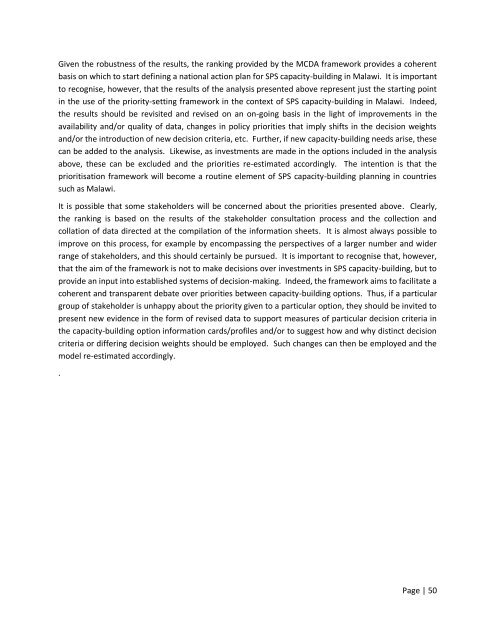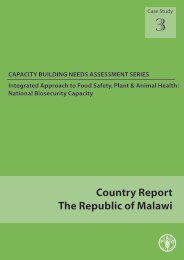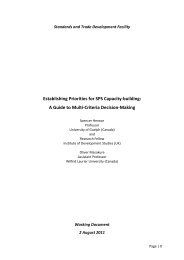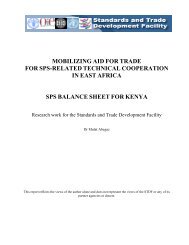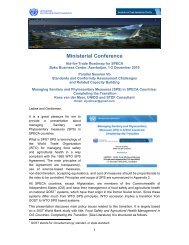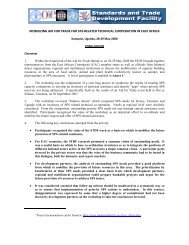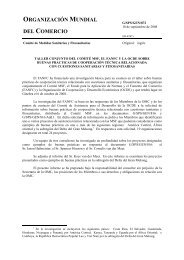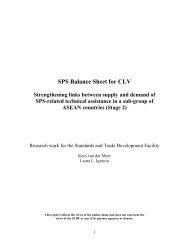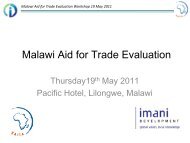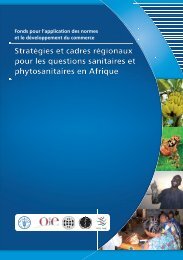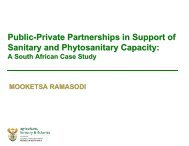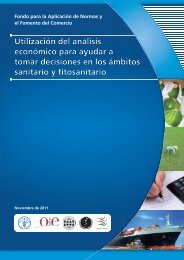MCDA Final Report Malawi - Standards and Trade Development ...
MCDA Final Report Malawi - Standards and Trade Development ...
MCDA Final Report Malawi - Standards and Trade Development ...
You also want an ePaper? Increase the reach of your titles
YUMPU automatically turns print PDFs into web optimized ePapers that Google loves.
Given the robustness of the results, the ranking provided by the <strong>MCDA</strong> framework provides a coherent<br />
basis on which to start defining a national action plan for SPS capacity-building in <strong>Malawi</strong>. It is important<br />
to recognise, however, that the results of the analysis presented above represent just the starting point<br />
in the use of the priority-setting framework in the context of SPS capacity-building in <strong>Malawi</strong>. Indeed,<br />
the results should be revisited <strong>and</strong> revised on an on-going basis in the light of improvements in the<br />
availability <strong>and</strong>/or quality of data, changes in policy priorities that imply shifts in the decision weights<br />
<strong>and</strong>/or the introduction of new decision criteria, etc. Further, if new capacity-building needs arise, these<br />
can be added to the analysis. Likewise, as investments are made in the options included in the analysis<br />
above, these can be excluded <strong>and</strong> the priorities re-estimated accordingly. The intention is that the<br />
prioritisation framework will become a routine element of SPS capacity-building planning in countries<br />
such as <strong>Malawi</strong>.<br />
It is possible that some stakeholders will be concerned about the priorities presented above. Clearly,<br />
the ranking is based on the results of the stakeholder consultation process <strong>and</strong> the collection <strong>and</strong><br />
collation of data directed at the compilation of the information sheets. It is almost always possible to<br />
improve on this process, for example by encompassing the perspectives of a larger number <strong>and</strong> wider<br />
range of stakeholders, <strong>and</strong> this should certainly be pursued. It is important to recognise that, however,<br />
that the aim of the framework is not to make decisions over investments in SPS capacity-building, but to<br />
provide an input into established systems of decision-making. Indeed, the framework aims to facilitate a<br />
coherent <strong>and</strong> transparent debate over priorities between capacity-building options. Thus, if a particular<br />
group of stakeholder is unhappy about the priority given to a particular option, they should be invited to<br />
present new evidence in the form of revised data to support measures of particular decision criteria in<br />
the capacity-building option information cards/profiles <strong>and</strong>/or to suggest how <strong>and</strong> why distinct decision<br />
criteria or differing decision weights should be employed. Such changes can then be employed <strong>and</strong> the<br />
model re-estimated accordingly.<br />
.<br />
Page | 50


